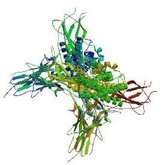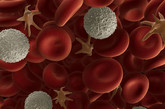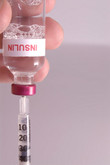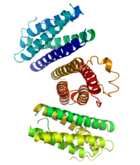Biosimilars
Roche abandons Herceptin patent in India
Swiss-based pharma giant Roche has decided not to pursue its patent for its blockbuster cancer drug Herceptin (trastuzumab) in India, opening the market to biosimilars.
Indian firms chasing ‘similar biologic’ Herceptin
Following the decision by Swiss-based pharma giant Roche not to pursue its patent for Herceptin (trastuzumab) in India [1] it seems that a whole host of Indian firms are lining up to get their ‘similar biologic’ of the blockbuster cancer drug to market.
Apotex breaking into the North American and European G-CSF markets
A new biosimilar filgrastim is poised to enter the important granulocyte colony-stimulating factor (G-CSF) market following a positive opinion from the European Medicines Agency’s (EMA’s) Committee for Medicinal Products for Human Use (CHMP).
EMA approval for Teva’s long-acting recombinant G-CSF
The European Medicines Agency (EMA) has granted marketing authorization for a new long-acting filgrastim – Lonquex (XM22 lipegfilgrastim) – to prevent chemotherapy-induced neutropenia in cancer patients.
Assessment of efficacy and safety of biosimilars in rheumatology
During the last decade, the availability of biological therapies has revolutionized the treatment of rheumatoid arthritis. Biologicals, unlike small-molecule chemical drugs, are extremely complex molecules, making producing biosimilars far from a simple process.
AstraZeneca pursuing biosimilars with Celltrion bid
Pharma giant AstraZeneca is rumoured to be ready to join the race for biosimilars with a bid for South Korean biotechnology company Celltrion.
Cost savings from use of biosimilars in rheumatology
The treatment of rheumatoid arthritis provides a clear argument in favour of developing biosimilars and the need to collect sufficient pharmacological data to validate their bioequivalence and interchangeability.
Teva and Lonza end biosimilars agreement
Despite Switzerland-based API producer Lonza denying reports back in April 2013 that it was considering backing out of its biosimilars joint venture with Israeli generics giant Teva Pharmaceutical Industries (Teva) that is just what has happened.
EMA reviewing biosimilar insulin application
According to EMA’s list of applications for new human medicines under evaluation by the Committee for Medicinal Products for Human Use released on 4 July 2013 the agency is now reviewing a new application for a biosimilar insulin product.
Biosimilar G-CSF prescribed more than originator
Sandoz, the generic drug division of Swiss drug giant Novartis, announced on 22 July 2013 that its biosimilar granulocyte colony-stimulating factor (G-CSF) Zarzio (filgrastim) has overtaken the originator product in terms of prescriptions.













